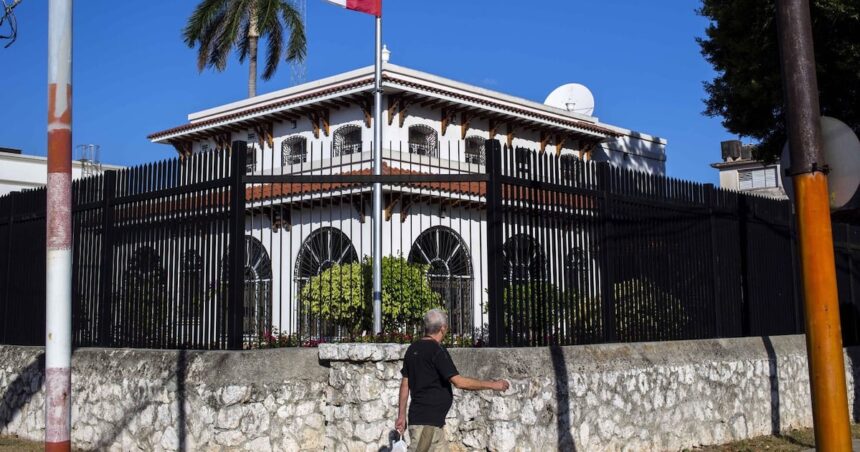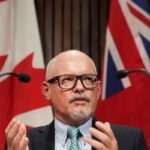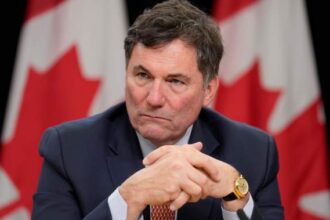In the scorching summer heat of Havana, a medical mystery that has haunted Canadian-Cuban relations for nearly a decade has resurfaced with renewed intensity. Toronto-based attorney Paul Miller now claims he possesses “compelling evidence” that Canadian diplomats stationed in Cuba between 2016 and 2018 were deliberately targeted by a foreign adversary using sophisticated directed-energy weapons.
“I am very confident that what happened to Canadian diplomats in Cuba was a targeted attack,” Miller told CO24 News in an exclusive interview. “The government has consistently downplayed these incidents, but the neurological damage documented in multiple medical assessments tells a different story.”
The mysterious ailments, collectively known as “Havana Syndrome,” first emerged when diplomats reported sudden headaches, dizziness, cognitive difficulties, and unusual auditory sensations while serving at the Canadian Embassy. Many described hearing piercing sounds before experiencing debilitating symptoms that persisted long after their return to Canada.
Miller represents 15 former diplomats and their family members in a $28 million lawsuit against the Canadian government, alleging Ottawa failed in its duty to protect staff and subsequently attempted to conceal the true nature of the incidents. The lawsuit, which has been working its way through courts since 2019, has gained new momentum following recently declassified intelligence reports.
“The Canadian government chose to keep our diplomats in harm’s way even after becoming aware of the dangers,” Miller asserted. “This wasn’t simply negligence—it was a calculated decision to maintain diplomatic relations at the expense of Canadians’ wellbeing.”
Foreign Affairs Minister Catherine MacDonald has consistently maintained that no definitive evidence exists linking the health issues to deliberate attacks. Speaking at a press conference in Ottawa last week, MacDonald reiterated the government’s position: “We continue to follow the science, which has not established any conclusive cause for these reported health incidents.”
However, neurological experts who have examined the affected diplomats paint a more troubling picture. Dr. Alon Friedman, a brain specialist at Dalhousie University who conducted extensive testing on the patients, found evidence of brain injuries consistent with exposure to directed-energy weapons.
“These individuals display patterns of damage that cannot be explained by conventional illness, stress, or mass psychogenic phenomena,” Dr. Friedman explained in his report to the House Committee on Foreign Affairs. “The specificity and consistency of their symptoms strongly suggest an external causative agent.”
The diplomatic implications have reverberated across both Canadian politics and international relations. While the United States has officially recognized similar incidents affecting their diplomats as “anomalous health incidents” potentially caused by directed-energy weapons, Canada has been more circumspect in its public statements.
Former ambassador to Cuba, Patrick Parisot, broke his silence last month, telling CO24 that embassy security concerns were “repeatedly dismissed” by Ottawa. “We raised alarms about unusual security breaches around diplomatic residences as early as 2016, but these reports were buried in bureaucratic processes,” Parisot claimed.
The economic stakes are significant. Canada maintains substantial business interests in Cuba, with investments exceeding $1.3 billion across tourism, mining, and energy sectors. Some analysts suggest this economic relationship may have influenced the government’s muted response to the health crisis.
“Acknowledging a deliberate attack would have forced a diplomatic confrontation that could jeopardize Canadian commercial interests,” explained Maria Hernandez, senior fellow at the Canadian Institute of Global Affairs. “It’s a textbook case of economic considerations potentially trumping duty of care.”
As the legal battle intensifies, affected diplomats continue to struggle with persistent health problems. Former consul Josée Thibault, who served in Havana from 2016 to 2017, described her ongoing battle with chronic migraines, cognitive impairment, and sensitivity to sound.
“My life has been fundamentally altered,” Thibault said. “The most painful part isn’t just the physical symptoms—it’s feeling abandoned by the very government I served.”
As this case moves toward a potential trial in early 2026, Canadians are left to consider a troubling question: In balancing diplomatic relations, economic interests, and the safety of its representatives abroad, has our government compromised its most fundamental obligation to protect its own citizens?










